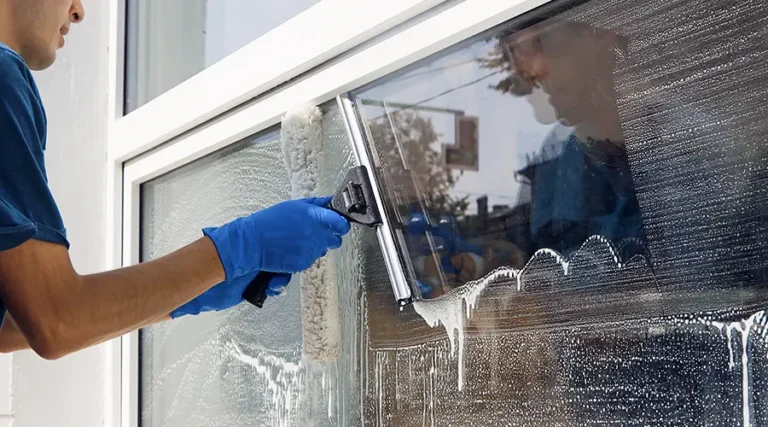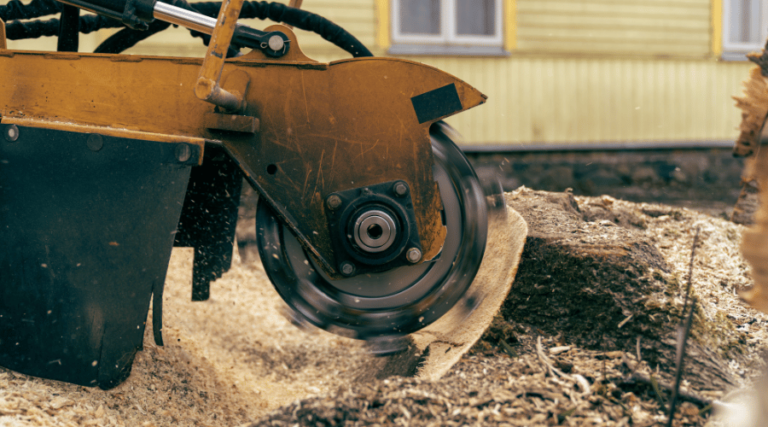How to Start a Chimney Sweep Business
Interested in learning how to start a chimney sweep business?
Starting a chimney sweep business can be an exciting and lucrative endeavor, especially considering the continual demand for such services. With the right planning and preparation, aspiring entrepreneurs can build a successful business that offers essential services to homeowners.
This article will provide guidance on the essential steps required to establish a well-run chimney sweep business.
Before diving into the chimney sweep industry, it’s crucial to conduct thorough research and understand the market and competition. Developing a comprehensive understanding of the industry will help entrepreneurs make well-informed decisions and plan effectively for long-term success. Additionally, forming a legal entity, such as an LLC, and registering for taxes is essential for operating within legal boundaries and protecting one’s personal liability.
Another crucial aspect of starting a chimney sweep business is choosing a recognizable name and logo. A strong brand identity will help attract customers and leave a lasting impression in the minds of potential clients. Besides, setting up a business bank account and securing necessary permits and licenses will ensure a smooth and hassle-free operation of the business. By following these guidelines, entrepreneurs can confidently embark on their journey to build a thriving chimney sweep business.
In This Article
- Planning Your Chimney Sweep Business
- Legally Establish the Chimney Sweep Business
- Insurance Requirements for a Chimney Sweep Business
- Understanding the Chimney Sweep Trade
- Services and Equipment
- Financial Planning
- Marketing Your Chimney Sweep Business
- Operations and Customer Service
- Expanding Your Business Skills
- Conclusion: How to Start a Chimney Sweep Business
Planning Your Chimney Sweep Business
Conduct Market Research
Before starting a chimney sweep business, it’s essential to conduct market research to understand the demand for chimney sweeps in your area. Analyze the existing competition and identify potential customers. Investigate the average price of chimney sweep services and determine how well your business could fit into the local market. Collecting this data is crucial to define your target audience and ensure your business thrives.
Choose a Business Structure
When starting a chimney sweep business, one of the first decisions to make is choosing a legal business structure. There are several options, including sole proprietorship, partnership, limited liability company (LLC), and corporation. Each type has its benefits and drawbacks, depending on the business owner’s priorities and goals.
- Sole Proprietorship: This is the simplest business structure with the least amount of paperwork, but the owner has personal liability for the business’s debts and losses.
- Partnership: A partnership involves two or more business owners and requires a partnership agreement. Each partner is personally liable for business debts and losses.
- Limited Liability Company (LLC): An LLC provides liability protection to the owner(s) without the complexities of a corporation. Profits and losses can be passed through to the owner’s personal tax returns.
- Corporation: A corporation is more complex and expensive to set up, but it provides liability protection and a separation between the business and its owner(s).
It’s essential to choose the appropriate structure for your chimney sweep business, considering factors like taxation, liability, and management preferences. Consult a professional to make an informed decision.
Create a Chimney Sweep Business Plan
A well-structured business plan is crucial for the success of your chimney sweep business. It should outline your business’s objectives, target audience, competition, financial projections, and marketing strategies.
- Executive Summary: This is an overview of your chimney sweep business, including its mission, goals, and operations.
- Market Analysis: Present your research findings about your target market, competitors, and potential customer base.
- Business Structure: Describe the legal structure of your business, such as whether it is an LLC, sole proprietorship, partnership, or corporation.
- Services and Pricing: Detail the services you will provide and their respective prices.
- Marketing Strategies: Describe how you will promote your business, both online and offline, to attract customers.
- Operations and Management: Explain how you will manage daily business operations and any staff you hire.
- Financial Projections: Forecast your expected revenue, expenses, and profit for the first few years of operation.
Creating a comprehensive business plan is essential for securing financing and guiding your chimney sweep business towards success. Incorporate your market research, legal structure, and overall business strategy to enhance your business’s potential for growth.

Legally Establish the Chimney Sweep Business
Choose a Business Name
Before registering your business, carefully consider your:
- Name choice: Ensure your chosen name is unique, memorable, and reflects the services you provide. Conduct research to avoid any potential legal issues or confusion with other businesses.
- Domain availability: Check for available domain names for your business’s online presence. An existing website with a similar name may complicate things.
- Trademark issues: Research any potential trademark issues to prevent legal problems with other businesses.
Register the Business
Once you’ve chosen a suitable name, proceed with these steps:
- Form a legal entity: Establish one of the common business structures such as a sole proprietorship, partnership, limited liability company (LLC), or corporation as described by TRUiC. This protects you from personal liability in case of lawsuits against your business.
- EIN: Apply for an Employer Identification Number (EIN). This is required for tax purposes and acts as your business’s Social Security number. Obtain one through the IRS website for free.
- State registration: Depending on your state, you may need to register your business with the state authorities.
Obtain Necessary Licenses and Permits
Compile the proper licenses and permits:
- Business license: Required across many states, a business license permits you to legally operate your business in your local area. Check with your local government for specific guidelines and requirements.
- Chimney sweep certification: Obtain accreditation through the National Fire Protection Association (NFPA) or other recognized organizations, ensuring compliance with industry standards and best practices.
- Additional permits and licenses: Investigate whether your business requires specific local, state, or federal permits, such as health and safety, environmental, or zoning permits. Compliance will keep your business in good standing with local authorities.
Follow the above steps to legally establish your chimney sweep business and begin your journey to success.
Insurance Requirements for a Chimney Sweep Business
Understanding Liability
When starting a chimney sweep business, it is crucial to understand the potential liabilities that may arise during the course of your work. Chimney sweeping involves navigating rooftops, working with ladders, and handling hazardous materials such as creosote and soot. As such, there are several risks associated with the job that can lead to accidents, property damage, or injury to clients or employees. To protect your business and personal assets, obtaining the appropriate business insurance is essential.
Types of Business Insurance
Various types of insurance policies are available to chimney sweep businesses to address the unique risks associated with the services they provide. Some common types of business insurance to consider include:
- General Liability Insurance: This insurance type is vital for any chimney sweep business as it covers the core risks of bodily injury, property damage, and medical payments source. General liability insurance can protect your company from lawsuits and claims arising from accidents or injuries that occur while you are performing your services.
- Commercial Auto Insurance: Since chimney sweeping involves traveling to clients’ homes, commercial auto insurance is necessary to protect your business vehicles and cover any damages or injuries resulting from accidents.
- Workers’ Compensation Insurance: If you have employees, you will need workers’ compensation insurance to cover any work-related injuries or illnesses your employees may experience.
Now, let’s explore the factors to consider when choosing business insurance for a chimney sweep business in a detailed table.
| Type of Insurance | Coverage | Purpose | Why Choose This? |
|---|---|---|---|
| General Liability Insurance | Bodily injury, property damage, medical payments | Provides protection against claims and lawsuits resulting from accidents, injuries, or property damage that occur during the course of your chimney sweep services | General liability insurance is essential due to the physical nature of chimney sweeping work and the potential risks involved in performing services at clients’ properties. |
| Commercial Auto Insurance | Vehicle damage, liability, and injury coverage | Protects your business vehicles and covers damages or injuries resulting from accidents involving your company vehicles while working | Commercial auto insurance is necessary since chimney sweeping requires traveling to clients’ homes in your business vehicles. |
| Workers’ Compensation Insurance | Lost wages, medical expenses, and rehabilitation costs | Covers your employees in case of work-related injuries or illnesses sustained while working for your chimney sweep business | Workers’ compensation insurance is required if you have employees, as it ensures their protection in the event of workplace accidents or illnesses and helps safeguard your business from potential lawsuits related to employee injury. |
In conclusion, considering the potential risks associated with chimney sweeping and the specific needs of your business, selecting the appropriate business insurance types will help protect your company and personal assets.
Understanding the Chimney Sweep Trade
Gaining Professional Experience
Before starting a chimney sweep business, it’s crucial to gain professional experience in the field. Working as a chimney technician provides valuable insights into the industry and helps build the necessary skill set required for running a successful business. Hands-on experience is essential in understanding various aspects of the trade, such as tools and techniques, safety measures, and customer service. Aspiring chimney sweep business owners are recommended to seek employment or internships with established companies to enhance their knowledge and skills.
Chimney Sweep Certifications
Obtaining industry-recognized certifications is another vital step in becoming a successful chimney sweep business owner. The Chimney Safety Institute of America (CSIA) offers a well-regarded Certified Chimney Sweep® credential that is recognized across the United States. This certification ensures that a chimney sweep has met the necessary standards and has demonstrated competence in the field.
Another reputable organization is the National Chimney Sweep Guild (NCSG), which manages three industry-leading chimney sweep credentials: Certified Chimney Professional (CCP), Certified Chimney Reliner (CCR), and Certified Chimney Journeyman (CCJ). These certifications, developed with input from NCSGS members and nearly 600 U.S. chimney professionals, help differentiate one’s chimney sweep business from the competition.
In conclusion, gaining professional experience and obtaining chimney sweep certifications are essential steps in starting a successful chimney sweep business. Doing so ensures that one possesses the necessary knowledge and skills to provide reliable, high-quality services to customers while adhering to safety guidelines and best practices within the industry.
Services and Equipment
Chimney Inspection and Repair
A chimney cleaning business must offer chimney inspection and repair services. Inspections are crucial to detect any damage or safety issues in a fireplace and its chimney. These inspections often involve checking the chimney cap, flue lining, and other crucial components. Professional chimney sweeping companies usually follow the National Fire Protection Association’s (NFPA) guidelines for chimney inspections, ensuring all safety requirements are met.
Chimney repair services can range from fixing minor issues, such as loose bricks or mortar, to more extensive tasks, like chimney relining. Proper repair helps maintain the functional and aesthetic integrity of a chimney.
Chimney Sweeping
Chimney sweeping is the core service provided by a chimney cleaning business. This service involves the removal of soot, creosote, and other debris from the chimney, ensuring it functions efficiently and safely. Chimney sweeps use a variety of tools and equipment for cleaning, such as:
- Chimney brushes with extension rods for manual cleaning
- Smoke chamber brush for cleaning the smoke chamber
- Chemical cleaners to loosen and dissolve creosote buildup
- Vacuum systems for dust and debris removal
In addition to the essential cleaning materials, proper protective gear, such as gloves and safety goggles, is required to protect the chimney sweep while performing their duties.
Additional Services
To enhance their service offerings, a chimney cleaning business may choose to provide additional services. These can include:
- Fireplace maintenance and repair: Servicing the fireplace, firebox, and hearth to ensure proper functioning and safety
- Chimney and fireplace installation: Offering professional installation services for new chimneys and fireplaces
- Chimney cap and damper installation and repair: Addressing issues with chimney caps and dampers to prevent water, debris, or animal entry
- Chimney relining: Replacement or repair of damaged chimney liners to promote better venting of smoke and combustion byproducts
By offering a comprehensive range of services and investing in quality equipment and supplies, a chimney cleaning business can efficiently cater to the varying needs of clients, ensuring their chimneys and fireplaces remain safe and functional.
Financial Planning
Understanding Startup Costs
Starting a chimney sweep business requires careful financial planning, especially when it comes to understanding the initial investment required. The startup costs will vary depending on the scale of your operation and your location. Typically, these costs may include:
- Business registration and licensing fees
- Purchasing or leasing necessary equipment, such as brushes, vacuums, and ladders
- Marketing and advertising expenses, such as website development and print materials
- Insurance coverage for liability and workers’ compensation
- Employee wages or subcontractor fees, if applicable
- Office or workspace rental, if needed
It is crucial to create a detailed list of expenses to have a clear understanding of the initial investment required to launch your chimney sweep business. This information will assist you in making informed decisions about your business’s financial needs.
Consider Financing Options
Once you have determined the startup costs for your chimney sweep business, it is essential to explore various financing options to fund your investment. Some common financing options are:
- Personal savings: If you have enough savings to cover the startup costs, you can use your personal funds to finance your business. This eliminates interest and repayment obligations but may put your personal finances at risk.
- Business loans: Banks and financial institutions offer business loans based on your credit score, collateral, and business plan. Business loans come with interest rates and terms that define your repayment schedule.
- Small Business Administration (SBA) loans: In the United States, the SBA offers loan programs to help small business owners secure financing. These loans typically have lower interest rates and more flexible terms than traditional bank loans.
- Investors: Find angel investors or venture capitalists interested in investing in your chimney sweep business. This can provide funding in exchange for equity in your company, but it may involve relinquishing some control over business decisions.
- Crowdfunding: Use online crowdfunding platforms to raise small amounts of capital from numerous contributors. This method may require active marketing and promotion of your campaign to attract potential funders.
By carefully considering your financial needs and various financing options, you can create a solid financial plan to support the growth and success of your chimney sweep business.
Marketing Your Chimney Sweep Business
Define Your Target Market
Understanding your target market is crucial for the success of your chimney sweep business. Start by analyzing the competition, pinpointing their strengths and weaknesses, and determining what sets your brand apart. Consider factors such as location, home types, and customer preferences. Once you have a clear understanding of your target market, focus on providing quality services that cater to their specific needs.
Logo and Branding
Establishing a strong brand identity is essential for your business. Create a unique and memorable logo that reflects your brand’s values and craftsmanship. A well-designed logo will make it easier for your clients to recognize your company and help you stand out from the competition. Along with the logo, choose a brand name that is easy to remember and conveys the essence of your business. Consistency in branding across all channels such as website and advertising is critical for earning trust and fostering brand loyalty among customers.
Advertising and Digital Strategies
In today’s digital world, it is essential to have a website that showcases your services and provides useful information for potential clients. Ensure your website is user-friendly, mobile-responsive, and incorporates your brand elements. Invest in search engine optimization (SEO) to reach potential customers searching for chimney sweep services in your area.
Embrace digital marketing strategies to promote your business:
- Create valuable content through blog posts and articles, sharing tips and advice related to chimney cleaning, which can position you as an expert in the field, and drive traffic to your website.
- Utilize social media platforms such as Facebook, Instagram, and Twitter to connect with your audience, share promotions, and showcase your work.
- Run digital advertisements on platforms like Google Ads, Facebook Ads, and Instagram Ads, targeting your specific audience to generate leads and increase conversions.
- Encourage customer reviews and testimonials on platforms like Google My Business, Yelp, and others, as they can significantly influence the decision-making process of potential customers.
By following these actionable steps and effectively leveraging the digital world, you can create a strong marketing foundation for your chimney sweep business, attract more customers, and ensure success in the long run.
Operations and Customer Service
Preparing Yourself and Your Workers
To start a chimney sweep business, proper preparation is crucial for both the owner and the workers. Begin with acquiring the necessary education and certifications in chimney sweeping. This may involve attending workshops, reading manuals, and learning about industry standards and safety guidelines. Ensuring your workers are also properly trained will help build a solid foundation for the business.
It’s essential to open a business bank account for managing finances, taxes, and payroll effectively. As you hire qualified staff, consider offering them continuous education and opportunities for growth, as this can contribute to a better work environment and improved service quality for homeowners.
Managing Dispatching and Invoicing
Efficient dispatching and invoicing play a significant role in the day-to-day operations of a chimney sweep business. Implementing a reliable scheduling and dispatching system will help you keep track of appointments, allocate tasks to workers, and manage your clients’ needs.
For invoicing, consider using software that simplifies the process and allows you to create professional invoices for the services provided. Prompt invoicing ensures proper cash flow and contributes to the overall financial success of the business.
Offering Quality Customer Service
Customer service is vital to making money and growing your own business in the chimney sweep industry. It includes understanding the needs of homeowners and providing timely, professional, and courteous service. Establishing clear communication channels between clients and workers is essential for meeting expectations and enhancing the overall customer experience.
- Offer flexible scheduling and strive to be on time for appointments.
- Maintain a clean and professional appearance during service calls.
- Be respectful and transparent with homeowners about the services they require, as well as potential costs and timeframes.
By focusing on these core aspects of operations and customer service, your chimney sweep business will be well-positioned for success and growth within a competitive market.
Expanding Your Business Skills
Continuing Education
Expanding one’s business skills is crucial for the success of a chimney sweep enterprise. Continuous education enables chimney sweeps professionals to stay current with industry advancements and regulations. Those who possess updated knowledge about fireplace cleaning techniques and safety protocols are more likely to build a successful business and maintain a satisfied customer base. Several institutions offer educational programs and certifications specifically designed for chimney sweeps, such as the National Training Academy.
As the business grows, it may be necessary to acquire new skills or deepen existing knowledge. Some areas of focus might include:
- Advanced chimney inspection methods
- Structural repairs for chimneys and fireplaces
- Installation and maintenance of chimney liners and caps
- Identifying and addressing potential safety hazards
Training
Training is another essential aspect of expanding a chimney sweep’s skills. Hands-on experience will help ensure that the chimney sweep can perform all necessary services efficiently and safely. In addition to formal education, practical training in the field under the guidance of an experienced professional or mentor can be invaluable.
While starting and growing the business, it is necessary to:
- Register the business with appropriate government agencies
- Obtain the necessary licenses and permits to operate legally
- Cultivate a professional network with other chimney sweeps and related industry professionals
By combining continuous education and practical training, a chimney sweep can confidently expand the skills needed to provide exceptional service to their clients. The balance of knowledge, experience, and professionalism contributes to creating a successful chimney sweep business that stands out in the market.
Conclusion: How to Start a Chimney Sweep Business
In conclusion, starting a chimney sweep business requires careful planning and execution. Firstly, it is essential to conduct thorough market research to understand the demand and competition in the area. This knowledge will help in crafting a business strategy that suits the local market.
Secondly, entrepreneurs must plan their investments and secure funds for the business. This involves researching and vetting financing options, as well as estimating the expenses that will be incurred in setting up the business.
One crucial step in establishing a chimney sweep business is forming a legal business entity and registering it with the appropriate authorities. This will protect the business owner from personal liability and ensure compliance with local laws and regulations. Opening a dedicated business bank account and setting up necessary taxes and accounting systems are also necessary steps for a smooth-running operation.
Additionally, obtaining the required permits and licenses is crucial for operating legally and maintaining a professional reputation. A business with proper certifications will gain credibility and attract more clients.
Hiring qualified staff and providing them with the necessary training will improve the quality of the services offered. Ensure that the employees have a good understanding of industry standards and best practices, as this will contribute to the success of the business.
Lastly, creating a strong online and offline presence is key to reaching potential clients and building brand recognition. This includes a well-designed website, social media presence, local advertisements, and participation in community events.
Following these guidelines can help entrepreneurs successfully launch and grow their chimney sweep businesses, while also making a positive impact on their communities.








